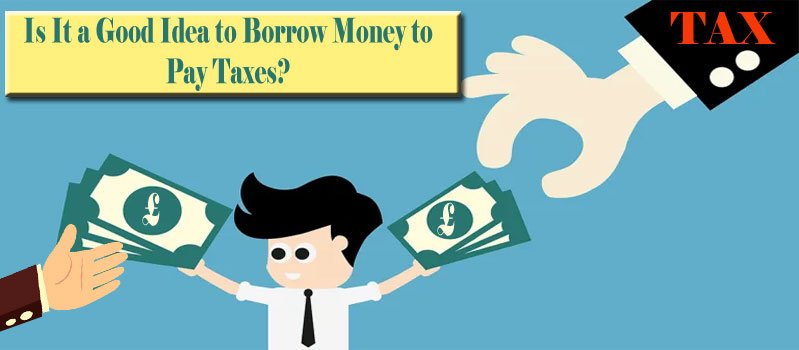It is not surprising that you face cash shortfall and the due date for paying taxes is imminent. If you do not pay your taxes on time, you will have to pay additional penalties, which means more money will go down the drain. No matter how hard you try to set aside money, you often find yourself running out of money.
Well, if you are facing a cash shortfall, loans can help you tide over. Financial experts generally recommend that you should apply for loans and use credit cards only during a financial emergency. For instance, your car has conked out, and your laptop is not up and running – but they strictly deny borrowing money for regular funding expenses.
Here, the question is whether you should take a loan out or use your credit card to pay taxes when you are running out of money. Is it a good idea or bad? Will you get out of it or deeper sink in? Will you be able to pay off the loan?
If you do not have enough money and your taxes are due, you can apply for short-term loans. Whether you apply for personal loans or use your credit card to pay taxes, make sure that you have a repayment plan to settle all your dues.
When does it make a sense to borrow money to pay taxes?
If you struggle to pay taxes, you should immediately inform HMRC. If it thinks you can pay the tax, you should pay it without further ado. You can pay using your debit card or credit card. However, HMRC can offer you different payment plans in case it feels you cannot pay the taxes outright.
It can give you either extra time to pay taxes or offer an instalment payment plan if HMRC is sure that you are genuinely unable to pay the whole of the taxes straightaway. Instalments can extend up to 120 days or more depending on the amount of taxes. If you enter into a payment plan, make sure that you keep up with instalments. Otherwise, HMRC will cancel the agreement, and you will be bound to face the repercussions of your negligence.
Remember that HMRC has the full right not to make any arrangements if it thinks you cannot get your payments on track with more time. In such a case, you will have to pay your taxes straightaway. This is a scenario when you will have to rely on loans.
What options are available to you?
From personal loans to credit cards, there are various alternatives to pay taxes.
Personal loans
If taxes are high, you should take out personal loans. As they are unsecured, you can easily borrow money without the risk of losing your valuable item. Personal loans are generally a better option when it costs less than HMRC payment plans and credit cards. However, there are certain drawbacks.
- You are taking on a large amount of debt.
- You will end up paying high interest if you have a poor credit rating.
- Your credit score may go down if you do not keep up with repayments.
While taking out personal loans, you need to ensure whether it suits your budget.
Doorstep loans
The most common reason for being unable to pay taxes outright is you have lost your job. Likely, you do not have an additional income source, or your savings may not be enough to pay your taxes. In this situation, no lender will allow you to take out personal loans. Therefore, doorstep loans will be your saviour.
You can apply for these loans as long as you have unemployment benefits or any other income source like a part-time job or freelance income.
Credit card
A credit card is also an option. If you can qualify for a card with 0% introductory APR, this will be the most affordable way to finance your taxes. With 0% APR, you will have much time to pay your debt without paying interest.
Although there are various borrowing methods, you should carefully handle your taxes. A loan can help you pay your taxes, but you will end up draining your money on interest payments.

